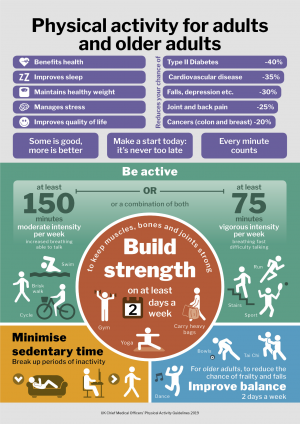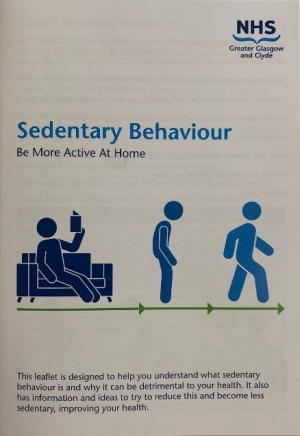Maximising Independence Update – Small Steps Make Big Strides
Our HSCP’s Maximising Independence approach with partners aims to deliver the largest change in health and social care in Glasgow in a generation. That’s a huge move. It’s complex and complicated, and it’s especially challenging to tackle such a major change during a global health pandemic. However, as with all long journeys, we’ll reach our destination by taking a series of small steps in the right direction.
All of us who work and live in Glasgow are involved in making Maximising Independence happen – whether that’s through our jobs or because we volunteer or take part in local community activities, or support and care for friends and family.
One example of how a series of small but interlinked steps is helping Glasgow City Health and Social Care Partnership (HSCP) staff to maximise independence with the people we support is in the work done by our Community Rehabilitation Teams, working together with colleagues in homecare and the wider community.
One example from many is Mrs A. Mrs A was admitted into hospital with a fractured hip following a fall. Once she was discharged home from hospital with a full care package, the therapy staff referred her to the Community Rehabilitation Team for ongoing rehabilitation, sharing details of Mrs A’s goals with them. The rehabilitation nurse visited Mrs A the day after she got home, to see how she was managing there, and to review and discuss her goals in partnership with her and her family.
Mrs A’s main goal was to return to attending church regularly. Before her fall, she had been mobile indoors unaided and she used a stick outdoors, but she was now using a zimmer. The Community Rehabilitation Team and the Reablement Team from our HSCP Homecare Services worked in partnership to achieve Mrs A’s goal of returning to church, using just a stick outdoors instead of a zimmer. Once Mrs A was discharged from Homecare, as she no longer needed the service and she was keen to continue exercising and re-engage with community services, she was referred to NHS Greater Glasgow & Clyde’s (NHSGGC) Live Active programme. Live Active supports people to set lifestyle goals whether it’s increasing their activity levels or simply living a more positive lifestyle.
 Lee Moody, Team Leader, for our HSCP’s North East Rehab and Enablement Service explains: “It’s amazing what impact even small amounts of activity at home can achieve. We’re always looking at ways of building and maintaining people’s strength and balance. By working in partnership with our patients, their families, colleagues and the wider community, we become an even better support team for our client. For example, we’ll recommend small goals such as encouraging people, who are able, to answer the door to their home carer rather than use their keysafe or advising that they walk to the toilet when their carer is present and able to supervise, rather than use their commode. All of this helps support their mobility, strength and confidence at home.”
Lee Moody, Team Leader, for our HSCP’s North East Rehab and Enablement Service explains: “It’s amazing what impact even small amounts of activity at home can achieve. We’re always looking at ways of building and maintaining people’s strength and balance. By working in partnership with our patients, their families, colleagues and the wider community, we become an even better support team for our client. For example, we’ll recommend small goals such as encouraging people, who are able, to answer the door to their home carer rather than use their keysafe or advising that they walk to the toilet when their carer is present and able to supervise, rather than use their commode. All of this helps support their mobility, strength and confidence at home.”
Keeping physically active is something that’s important for all of us, but it’s particularly important for older people as evidence shows they can spend 80% of their day being sedentary. Sedentary behaviour is well evidenced as being harmful to our health, and the Government has helpfully produced some physical activity guidelines that would be worth us all being mindful of, not just for consideration of our service users.
In the North East Rehabilitation Service our staff have seen first-hand the adverse effects of the recent lockdowns and the effect this has had on people’s physical activity, or lack of it. At a time when having students in the community was challenging, the physiotherapists there used the opportunity to work with students from Glasgow Caledonian University to develop a Sedentary Behaviour Leaflet. This can be used by all services  and be ordered by emailing NorthEast.RehabService@ggc.scot.nhs.uk
and be ordered by emailing NorthEast.RehabService@ggc.scot.nhs.uk
Lee continued: “Sometimes, some fairly simple aids and adaptions can really help people live more comfortably and independently so we encourage colleagues and carers to use the ask SARA service. This online service offers useful advice, contact details and practical aids and support equipment to help make daily living easier.
“Feeling isolated can affect people’s strength and resilience, too, so some of the best ways of maintaining independence can be through taking part in the local community. Again, this doesn’t need to be anything grand – just building some connections with other people.
“Partnerships are key here, too. We’ve been working together with Glasgow Life and Knightswood Connects, a group that was set up to tackle loneliness and isolation among over 50s in the local area enabling them to engage and connect through going for walks together within the community. As well as improving fitness, the walks have lots of other benefits such as helping to build friendships and local support networks. They’re an opportunity to reduce isolation, and they’re even a great way of sharing ideas and local information and advice.”
Susanne Millar, our HSCP’s Chief Officer commented: “Seeing how our services are working in partnership with others in our wider health and care community illustrates our Maximising Independence approach perfectly. When we’re making such a significant long-term change across the whole health and social care system in Glasgow, it’s encouraging to see how progress happens through all of us thinking about how we can maximise independence by making seemingly small changes every day.
“Ultimately, as well as supporting people to stay well at home for as long as they can and want to, it saves valuable resources that can be reinvested into our city’s health and social care system.”
To find out more about Maximising Independence go to https://glasgowcity.hscp.scot/maximising-independence.
